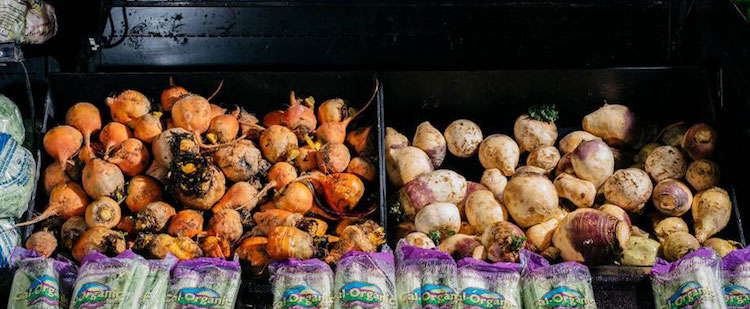By Jaya Ramachandran
ROME (IDN) – The UN Food and Agriculture Organization (FAO) has warned that declining prices could obstruct international efforts to eradicate hunger and extreme poverty, and called for necessary steps to guarantee decent incomes and livelihoods for small-scale producers.
“Low food prices reduce the incomes of farmers, especially poor family farmers who produce staple food in the developing countries. This cut in the flow of cash into rural communities also reduces the incentives for new investments in production, infrastructure and services,” said FAO Director-General José Graziano da Silva at a high-level meeting on agricultural commodity prices in Rome.
He noted that globally, food prices are believed to be back to their long-term downward trend in real terms, as supply growth outpaces demand. This follows the price surges experienced during 2008-2012, and a prolonged period of volatility in food markets.
He emphasized the need to consider the current decline in agricultural commodity prices in the context of the international community’s efforts to achieve the 2030 Agenda and the Sustainable Development Goals (SDGs).
In a video address to the meeting, World Trade Organization (WTO) Director-General Roberto Azevêdo said that under the right circumstances, trade provides people with opportunities to join global markets and helps to create incentives for producers to invest and innovate.
The “historic decision” struck in Nairobi in December 2015 by WTO members to eliminate agricultural export subsidies will “help level the playing field in agriculture markets, to the benefit of farmers and exporters in developing and least-developed countries,” Azevêdo said.
Graziano da Silva pointed to the potential of trade in contributing to global food security and better nutrition, specifically underlining its potential role as an “adaptation tool” to climate change – countries that are projected to experience decreasing yields and production due to climate change will have to resort to the global markets to feed their populations.
But the FAO Chief also noted that increased openness to trade can bring risks. If not well managed, it “can undermine local production and consequently the livelihoods of the rural poor,” he said.
The elimination of agricultural export subsidies that affect prices in global markets could be one way to improve trade so that it benefits small farmers in developing countries and creates prosperity in rural areas, he added.
With demand representing one of the most powerful drivers of food prices, an essential way to make these more remunerative for producers, yet affordable for consumers, is to promote and strengthen targeted social protection programmes and other schemes such as food vouchers, the FAO Director-General said. “The aim of these policies is to build a virtuous cycle of local production and local consumption,” he added.
To succeed, such measures need strong collaboration between the institutions responsible for agriculture, rural development, trade, the environment, nutrition, health and social security, he noted.
To better develop future scenarios on the long-term behaviour of agricultural commodity prices, he highlighted that FAO seeks to boost its modelling systems to better understand possible price swings and changes in trends and assist countries to formulate appropriate policies.
In this context, the OECD-FAO Agricultural Outlook, a joint publication of FAO and the Organisation for Economic Co-operation and Development (OECD), has pointed out the high probability that over the next 10 years, some abrupt price surges may occur, mainly as a result of climate change.
While the world has seen some progress on combatting the root causes of hunger and malnutrition, the challenge of providing the fundamental right to adequate food to all people must remain a priority, United Nations Secretary-General Ban Ki-moon said today, urging Member States to continue to work together to tackle the problem.
Back on September 22, UN Secretary-General Ban Ki-moon had pointed out at a high-level event at the UN Headquarters in New York: “It is unacceptable in a world of plenty that nearly 800 million people still suffer from hunger.” This represents a collective moral and political failure, he added.
The event, “Pathways to Zero Hunger”, co-organized by the FAO), the International Fund for Agricultural Development (IFAD) and the World Food Programme (WFP), sought to galvanize momentum for the Zero Hunger Challenge launched by the Secretary-General in 2012. [IDN-InDepthNews – 03 October 2016]
Photo: A market in Boulder, Colorado, USA. Photo: FAO/Benjamin Rasmussen
IDN is the flagship of International Press Syndicate.

